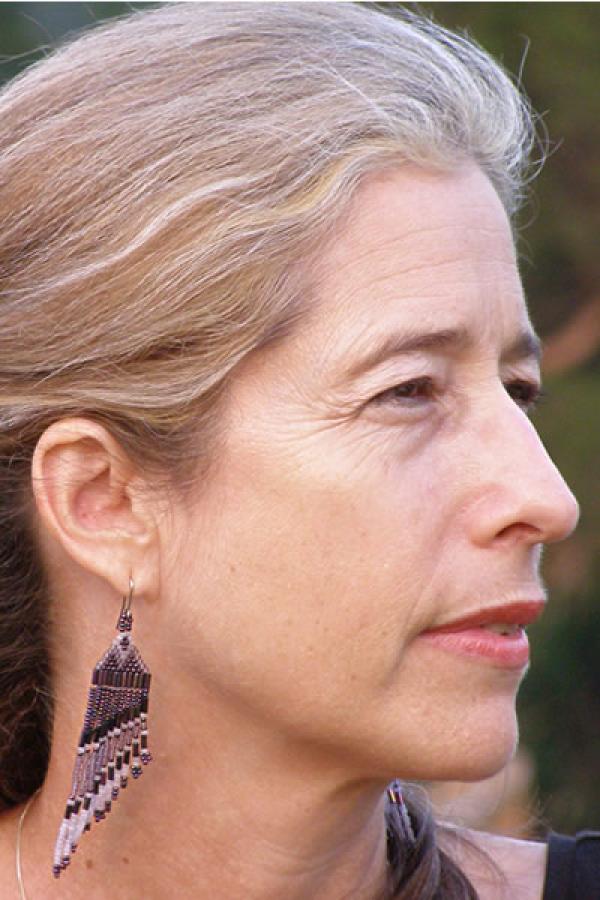Dana Roeser

Photo by Lucille Colin
Bio
Dana Roeser's first book of poems, Beautiful Motion, was the winner of the Samuel French Morse Prize. In 2005, she won the Great Lakes Colleges Association New Writers Award for Beautiful Motion and the 2005-2006 Jenny McKean Moore Writer-in-Washington Fellowship. Ms. Roeser's poems have appeared in such journals as The Iowa Review, Virginia Quarterly Review, Antioch Review, Southern Review, Northwest Review, Pool, and Shade, as well as on Poetry Daily. She lives in West Lafayette, Indiana, with her husband and two daughters and is a visiting professor at Butler University in Indianapolis.
Photo courtesy of Dana Roeser
Author's Statement
The NEA fellowship will give me an opportunity to take a semester off from teaching and devote much-needed time to my writing. I am extremely grateful for this opportunity, as well as for the recognition that the award confers.
"Night"
I love the night. In the morning,
my husband's mother loves him and bakes him
an apple pie. In the morning, he
wakes early and writes clever
poems to place on her doorstep. My time is the night.
Negative of his positive. The world
in which I am loved--because it is
not the world. But the world's moon, its reflection. My mother
only wanted to nap. I can see that
now, because I have become her.
It was not the nap. At three in the afternoon.
It was the solitude. It was
reprieve from daylight. She made a stab
at the tourist hot spots, the wholesome outings. By
afternoon she couldn't stand the homilies,
the group leg iron. She had to go
to bed! I am just like her. My father's new girlfriend
hands me the tourist highlights
from the local paper--the boardwalk
art show and dolphin jumping--
and I hand it directly
to my husband. My father's new
girlfriend is a morning person. She doesn't have a
mean streak. After one hundred years of
terror, we flock to her,
cling to her daylight. She says the words
my mother said, calls my father
by his nickname, but it's weirdly substanceless,
like suddenly she's the night and my mother,
day. My mother had
dark hair and Ellen has light,
and so on. My mother had the courage of her convictions.
She did not do yoga. She did
not get massage. She liked a
rare steak and a glass of whiskey--but only one. All things
in moderation, even her lurid dying. She
said, We Ladies of the Old
South rise above it; she carried The Way of All Flesh in
her blue night bag for her last
trip to the hospital. She knew she was
out of air. She knew that nowhere on earth, in this life,
was there enough oxygen for her.
I wept for six months
about her life. About how there was no
element for her. She never
looked comfortable,
not in her childhood photos and portraits,
not in all the years I knew her. She
came to life a little in
the twilight. Her once-daily cigarette at sunset
on the beach. She loved the shore,
the margin, the entrance to
the wild, other, world. I wept because living
seemed agony to her, and love,
the worst. I kept saving things
to tell her. Most of the letters I wrote to her, I tore up
or put aside. I was saving stories
for that other place, our own
dead letter office, a place without shadow,
that paradise, the night.

